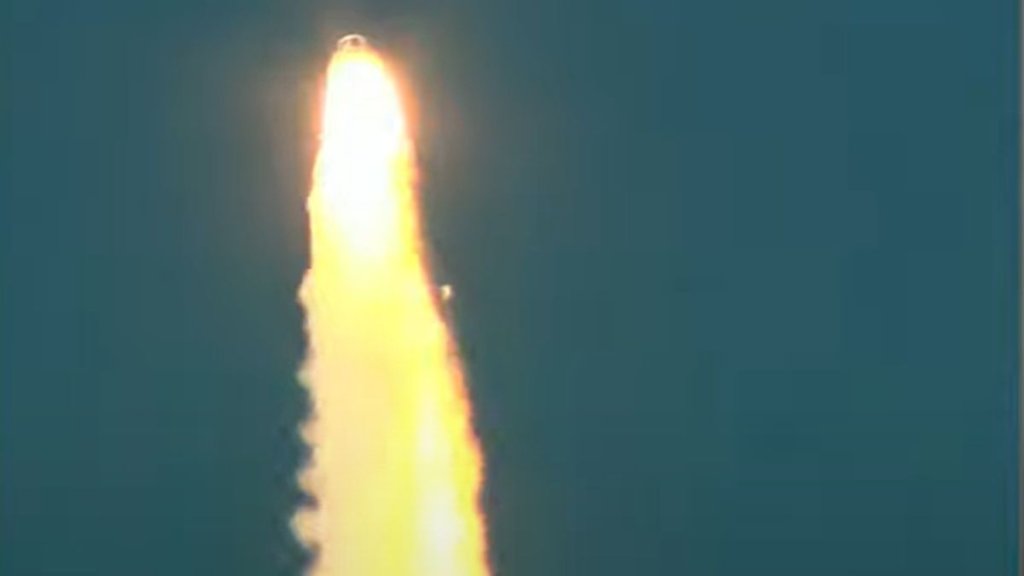Blue Origin will end its 15-month spaceflight hiatus next week, if all goes according to plan.
The company, which was founded by Amazon’s Jeff Bezos, hasn’t flown since its New Shepard suborbital vehicle suffered an anomaly during an uncrewed research flight on Sept. 12, 2022. But that long drought is about to end.
“We’re targeting a launch window that opens on Dec. 18 for our next New Shepard payload mission. #NS24 will carry 33 science and research payloads as well as 38,000 @clubforfuture postcards to space,” Blue Origin announced today (Dec. 12) via X (formerly known as Twitter).
Related: Failure of Blue Origin’s New Shepard a reminder that spaceflight is still hard
New Shepard is a reusable rocket-capsule combo that Blue Origin uses to take people and payloads to suborbital space. The vehicle has launched 23 times to date, six times with people on board.
The September 2022 flight, known as NS-23, was a research-only jaunt. It did not go well: About 65 seconds after launch, New Shepard’s booster suffered a serious problem and came crashing back to Earth. The capsule managed to jet away from the problem and landed softly under parachutes, its 36 research payloads intact.
Blue Origin soon undertook a mishap investigation, which was overseen by the U.S. Federal Aviation Administration (FAA). In March, the company announced that it had pinpointed the cause of the crash — a “thermo-structural failure” of the nozzle on the BE-3PM engine that powers New Shepard’s booster.
The FAA agreed with that conclusion and, in September, closed the mishap investigation. But Blue Origin couldn’t return to flight quite yet; the FAA required the company to “implement 21 corrective actions to prevent mishap reoccurrence, including redesign of engine and nozzle components to improve structural performance during operation as well as organizational changes,” agency officials wrote in a Sept. 27 press release.
“Blue Origin must implement all corrective actions that impact public safety and receive a license modification from the FAA that addresses all safety and other applicable regulatory requirements prior to the next New Shepard launch,” the FAA added.
That work is apparently all done, for New Shepard is headed back to the pad at Blue Origin’s West Texas launch site.
Blue Origin isn’t the only company that launches paying customers to and from suborbital space; Virgin Galactic, which is part of British billionaire Richard Branson’s Virgin Group of companies, does so as well. In the 15 months that New Shepard has been grounded, Virgin Galactic has launched six crewed missions with its VSS Unity space plane.

